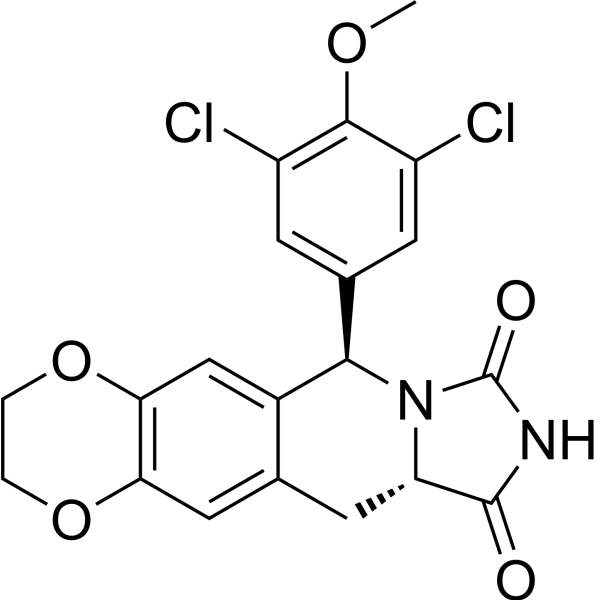| In Vitro |
Tubulin polymerization-IN-41 (compound C3) displays remarkable antiproliferative activities with IC50 values of 6.3 nM, 9.2 nM, 8.3 nM, and 8.7 nM for K562, MCF-7, HT29, and HCT116 cells, respectively. Additionally, Tubulin polymerization-IN-41 shows marked activity against Paclitaxel-resistant MCF-7 cells and A549 cells[1]. Tubulin polymerization-IN-41 (compound C3; 5-20 nM) downregulates the expression of acetyl-α-tubulin (Ac-α-tubulin) and upregulated the expression of detyrosinated-α-tubulin (DeY-α-tubulin) in a concentration-dependent manner[1]. Tubulin polymerization-IN-41 (compound C3; 5-20 nM; 24 hours) could arrest cancer cells in the G2/M phase, and induces MCF-7 cells apoptosis in a concentration-dependent manner[1]. Tubulin polymerization-IN-41 (compound C3; 5-20 nM; 24 hours) reduces Ser216 phosphorylation, resulting in cdc2 Tyr15 dephosphorylation and Thr161 phosphorylation, which ultimately leads to the activation of subsequent cdc2/cyclin B1 complex[1]. Cell Cycle Analysis[1] Cell Line: MCF-7 cells Concentration: 5 nM, 10 nM, 20 nM Incubation Time: 24 h Result: Could arrest cancer cells in the G2/M phase. Apoptosis Analysis[1] Cell Line: MCF-7 cells Concentration: 5 nM, 10 nM, 20 nM Incubation Time: 24 h Result: Induced MCF-7 cells apoptosis. Western Blot Analysis[1] Cell Line: MCF-7 cells Concentration: 5 nM, 10 nM, 20 nM Incubation Time: 24 h Result: Induced cdc25c activation.
|
